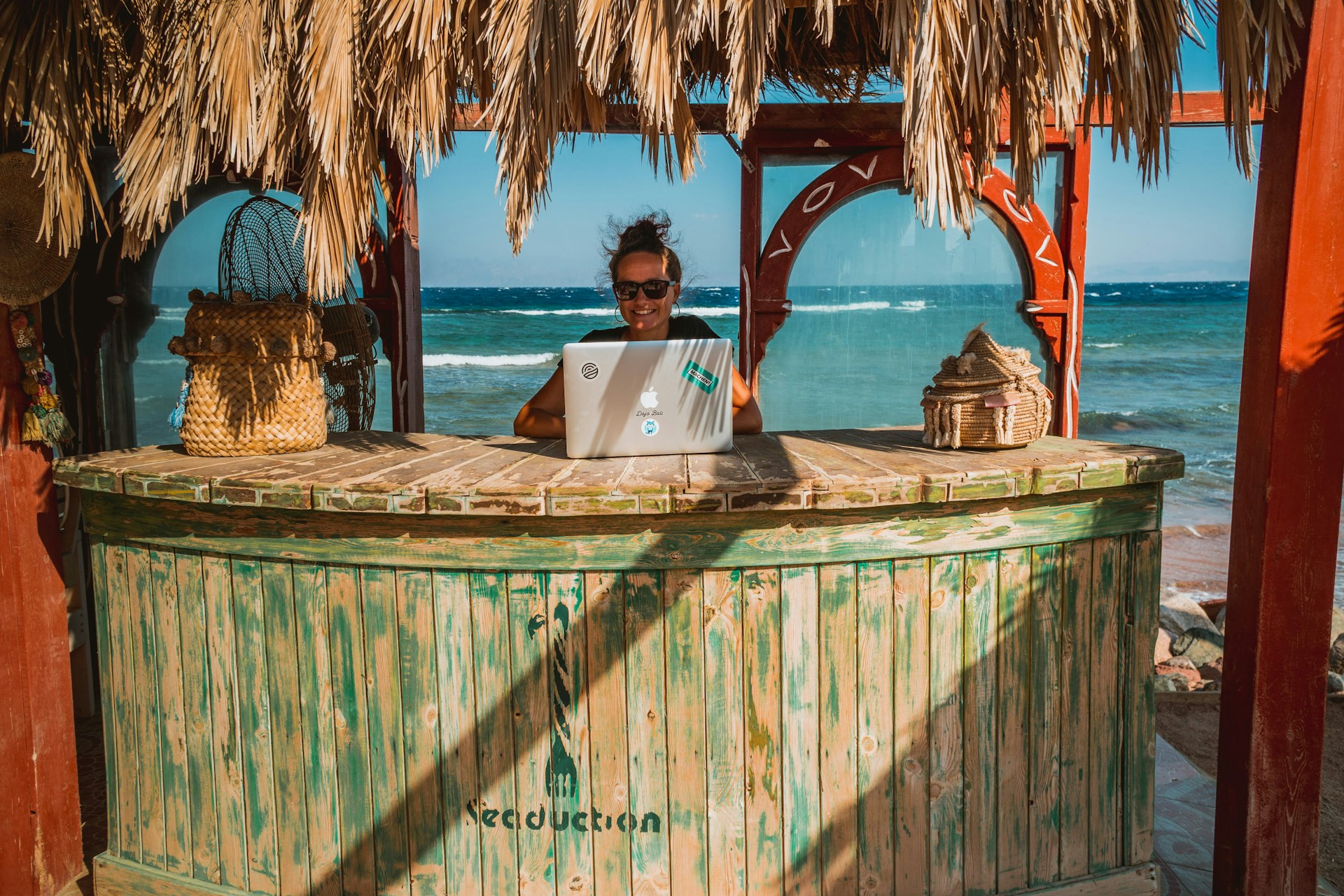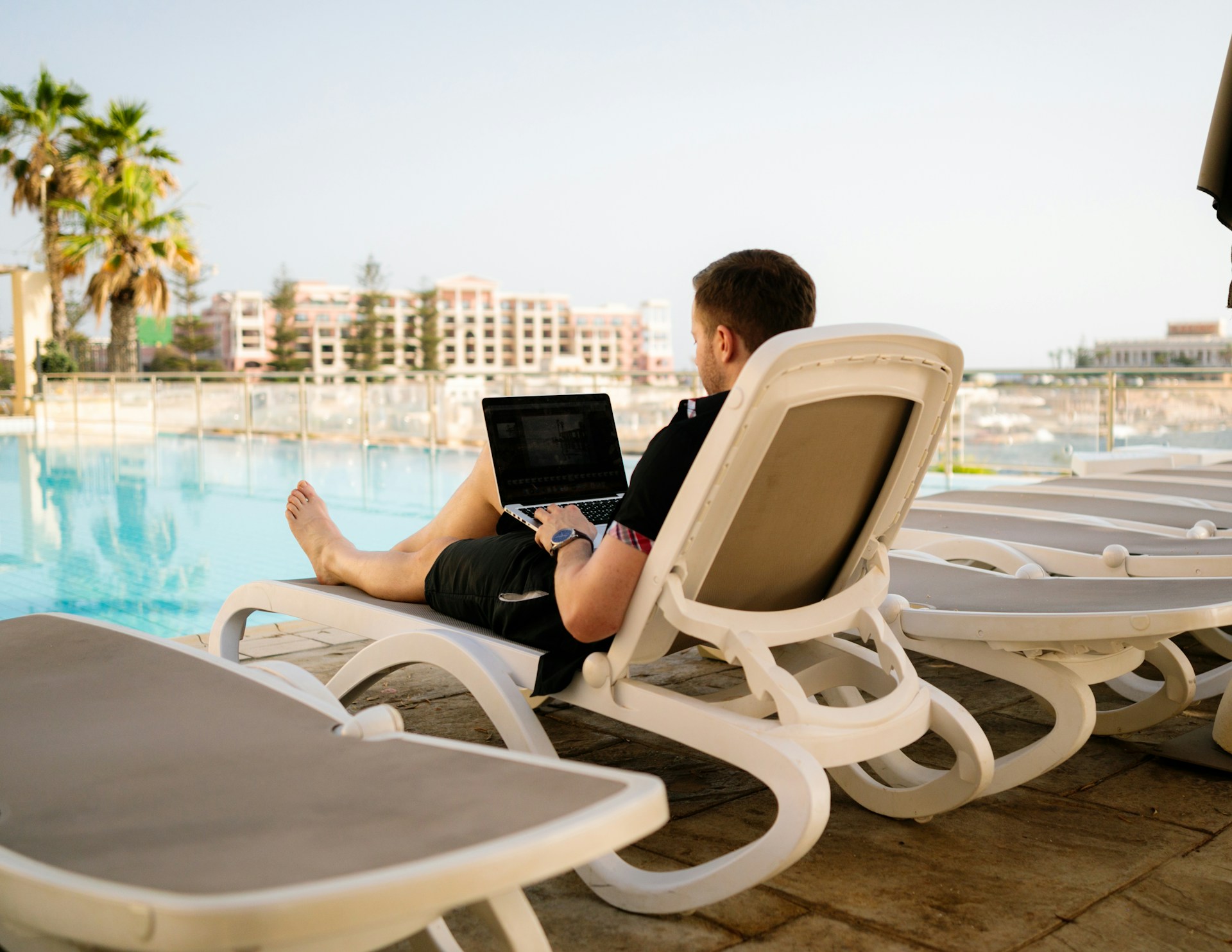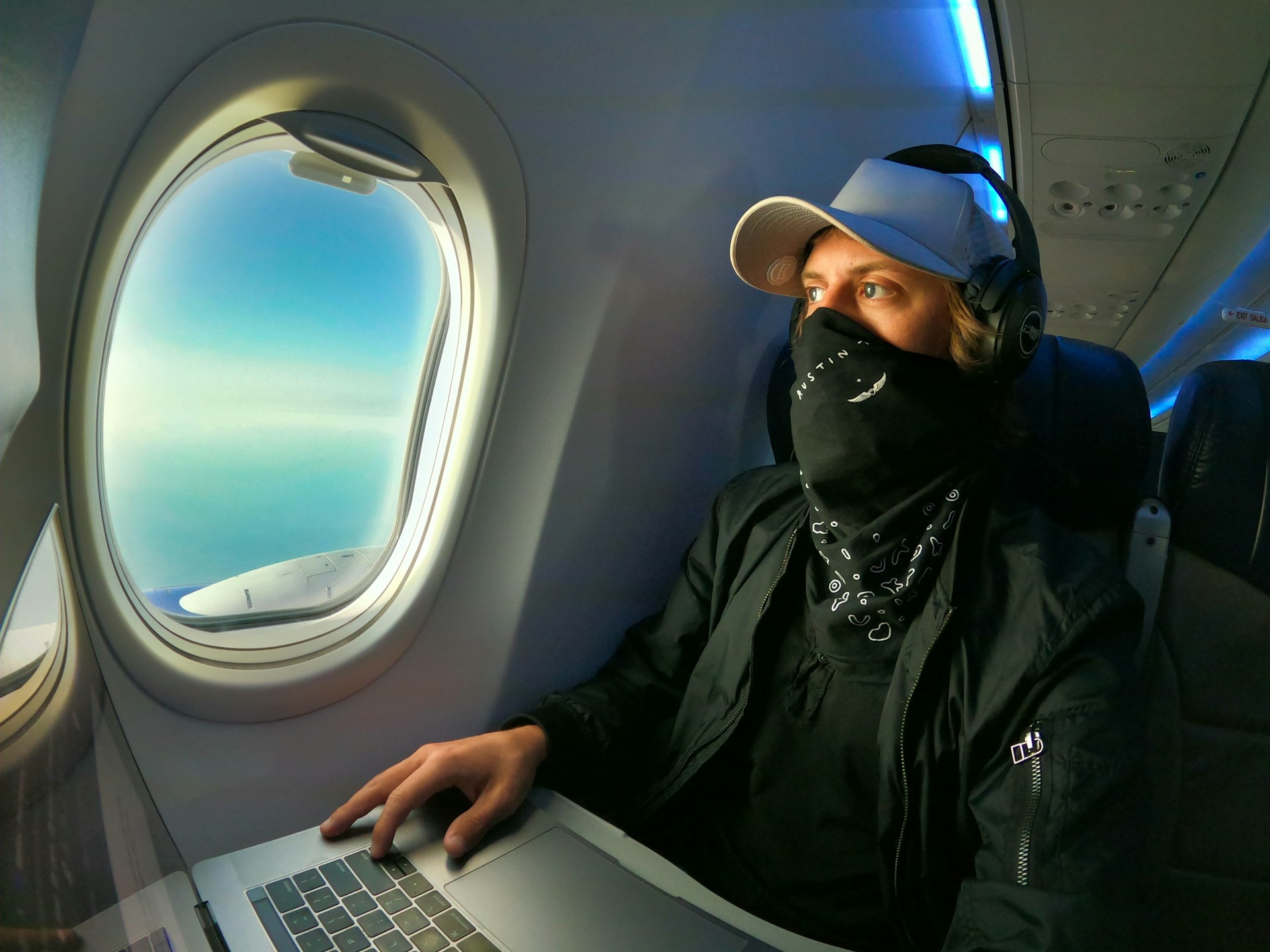The concept of remote work, once a fringe benefit, has rapidly evolved into a mainstream work arrangement, thanks to technological advancements and a significant shift in workplace culture. This seismic change has been accelerated by global events like pandemics, which forced businesses and individuals alike to rethink the traditional workspace.
As enchanting as this lifestyle may sound, it requires meticulous planning, adaptability, and a keen understanding of the dynamics of remote work. From choosing the right career that allows for mobility, managing different time zones, ensuring consistent internet connectivity, to navigating the legalities of working in different countries, each aspect plays a crucial role in successfully integrating work with world travel.
Whether you’re a freelancer, a full-time employee, or an entrepreneur, the dream of traveling the world while working remotely is more accessible than ever. Join us as we unravel the secrets to making this dream a reality, ensuring that you’re well-equipped to take on this exciting and rewarding challenge.
Choosing the Right Job for Remote Work
The landscape of remote work is vast and varied, offering opportunities across numerous industries. However, some careers are inherently more conducive to this lifestyle. The digital realm, unsurprisingly, reigns supreme in remote work. Careers in IT, such as software development and web design, offer the flexibility to work from anywhere with a stable internet connection. Similarly, digital marketing, content creation, graphic design, and data analysis are fields where remote work is not just possible but often preferred.
A report from FlexJobs highlights the rapid growth of remote work in sectors like technology, healthcare, and customer service. These industries have seen a significant uptick in remote job listings, indicating a broader acceptance of remote work across various fields.
The transition to remote work is not merely about finding a suitable job; it’s also about equipping oneself with the right skills. For many remote jobs, digital proficiency is a must. This includes familiarity with various communication tools (like Slack, Microsoft Teams, or Zoom), project management software (like Asana or Trello), and discipline-specific software (like Adobe Creative Suite for designers).
Additionally, soft skills play a critical role. Self-discipline, time management, and effective communication are paramount in a remote setting where direct supervision is limited. Online courses, webinars, and workshops can be invaluable resources for acquiring and refining these skills.
Essential Tools and Technology for Remote Work
Digital Tools for Communication and Project Management
The cornerstone of successful remote work lies in effective communication and efficient project management. Tools like Slack and Microsoft Teams have revolutionized workplace communication, allowing for seamless collaboration regardless of geographical boundaries. For project management, platforms like Asana and Trello provide organizational clarity and help keep track of deadlines and deliverables. A survey by Atlassian noted that 76% of remote workers rely on project management tools for daily operations.
Gadgets and Tech for a Mobile Office
The concept of a mobile office is integral to the remote working lifestyle. Key components include a lightweight yet powerful laptop, noise-cancelling headphones to focus in busy environments, and a reliable smartphone. Additionally, portable chargers and external hard drives are essential for those on the move. A foldable, ergonomic laptop stand can also be a game-changer, offering comfort during long working hours.
Reliable Internet Connectivity
Internet connectivity is the lifeline of remote work. Digital nomads often invest in portable Wi-Fi devices to ensure stable internet access. Researching the internet infrastructure of potential destinations is crucial before travel. For instance, platforms like Nomadlist provide real-time data on internet speeds in different cities around the world.
Tips for ensuring consistent internet access include having a local SIM card with a data plan as a backup, identifying coworking spaces or cafes with reliable Wi-Fi, and using tools like Speedtest to check internet speed.
Managing Time Zones and Work-Life Balance
Working with clients or teams across the globe requires adept time zone management. Tools like World Time Buddy can be invaluable for scheduling and avoiding conflicts. Experienced remote workers often suggest aligning your work hours with the time zone of your primary client or team, even if it means unconventional working hours. This synchronization ensures real-time collaboration and can significantly enhance productivity and communication.
Maintaining Work-Life Balance While Traveling
The allure of new destinations can sometimes overshadow work commitments, making it challenging to maintain a work-life balance. Setting clear boundaries is crucial. This means designating specific hours for work and exploration.
Another key aspect is to have a dedicated workspace, whether it’s a quiet corner in your accommodation or a local coworking space. This helps in mentally separating work from leisure, an important factor in maintaining productivity.
Stay Productive
Staying productive in varying environments is a skill that remote workers master over time. Creating a daily routine, using productivity apps like Pomodoro timers, and setting realistic goals are some effective strategies. Additionally, regular breaks and physical activity are important to avoid burnout. A survey by Trello found that remote workers who took regular breaks reported higher efficiency and job satisfaction.
Networking with other digital nomads and participating in local meetups can also provide a sense of community and motivation. These interactions not only foster professional relationships but also offer opportunities to share tips and experiences about balancing work and travel.
Financial Planning and Budgeting
Budgeting for a Nomadic Lifestyle
Embracing a nomadic lifestyle requires careful financial planning. The first step is to create a detailed budget that accounts for travel costs, accommodation, food, insurance, and other living expenses. Tools like Mint or YNAB (You Need A Budget) can be extremely helpful in tracking expenses and planning ahead. It’s important to factor in the cost of living differences between destinations. Websites like Numbeo provide valuable insights into the cost of living in various cities around the world.
Understanding Tax Implications
One of the complexities of working remotely while traveling is navigating tax obligations. Remote workers often have tax liabilities in their home country, and possibly in the countries they visit, depending on the duration of their stay. Consulting with a tax professional who understands international tax laws is crucial
Savings and Investment Strategies for Remote Workers
Financial security is paramount for remote workers, especially those who travel frequently. Establishing a robust savings plan and considering investment options can provide a safety net. Many remote workers recommend setting aside a portion of income into an emergency fund. Diversifying investments, such as stocks, bonds, or real estate, can also be a wise strategy to ensure financial growth and stability over time.
Choosing Destinations
Criteria for Selecting Travel Destinations
The choice of destination significantly impacts the experience of a remote worker. Key factors to consider include:
Cost of Living: Budget plays a pivotal role in destination selection. Affordable destinations allow for longer stays and a better quality of life. Southeast Asia, for instance, is popular among digital nomads for its low cost of living.
Internet Reliability: Dependable and fast internet is non-negotiable. Destinations like Estonia, known for its advanced digital infrastructure, are highly favored by remote workers.
Safety: Safety is a paramount concern, especially for solo travelers. Researching destinations through forums like TripAdvisor and getting insights from other travelers can be helpful.
Cultural and Language Barriers: Being aware of cultural norms and language barriers is crucial. Some remote workers choose destinations with a sizable expat community to ease the transition.
Cultural Considerations and Language Barriers
Adapting to different cultures and languages is part of the digital nomad journey. Learning basic phrases in the local language, understanding cultural etiquette, and being open to new experiences can greatly enhance the travel experience. Engaging with local communities and other expats can also provide deeper cultural insights and make the experience more fulfilling.
Legal Considerations
Understanding Visa Requirements
The cornerstone of legal planning for digital nomads is understanding visa requirements for each destination. Many countries offer specific visas for remote workers or digital nomads, like Portugal’s temporary stay visa for remote work or Estonia’s Digital Nomad Visa. It’s crucial to research visa options and requirements well in advance, as they can vary significantly from country to country.
Work Permits and Legal Restrictions
While some countries welcome digital nomads, others have more stringent regulations about working while on a tourist visa. It’s important to distinguish between being permitted to work remotely for a foreign employer and being allowed to work within the local economy. Seeking advice from immigration experts or lawyers can provide clarity and prevent legal complications.
Health Insurance and Medical Care Abroad
Health insurance is another critical aspect. Traditional travel insurance might not cover long-term stays or specific medical needs. Many remote workers opt for international health insurance plans that provide comprehensive coverage in multiple countries. Additionally, understanding the healthcare system of your destination is essential.
Building a Support Network
For remote workers, building a support network is vital for both professional growth and personal well-being. A sense of community can mitigate feelings of isolation that sometimes accompany remote work. Networking opportunities, whether online or in-person, foster connections, provide emotional support, and can lead to professional collaborations.
Online communities and forums are lifelines for digital nomads. Platforms like Nomad List, Reddit’s digital nomad subreddit, and various Facebook groups offer spaces to ask questions, share experiences, and get advice from fellow nomads. These forums can be invaluable for learning about new destinations, finding accommodation, and even troubleshooting work-related issues.
Physical meetups and conferences provide opportunities to connect with peers in real life. Events like the Nomad Summit or local meetup groups in various cities allow remote workers to learn from experienced speakers, participate in workshops, and network with other professionals leading similar lifestyles.
Overcoming Challenges
One of the most common challenges for remote workers, especially those who travel, is the feeling of isolation and loneliness. Being away from familiar social networks and facing new environments can be daunting.
Regular video calls with family and friends can help maintain a sense of connection. Joining local expat communities or digital nomad groups can provide social interaction and a sense of belonging. Platforms like Meetup are great for finding local events and gatherings.
Cultural differences can lead to misunderstandings and a sense of alienation. Being in a new country with different customs, languages, and social norms requires adaptability and sensitivity. But learning about the local culture and basic language skills before arrival can go a long way. Showing respect for local customs and being open to new ways of life can enhance the experience.
Conclusion
The rise of digital nomadism symbolizes a significant shift in our understanding of work-life balance. It’s about finding harmony between professional ambitions and the innate human desire to explore and experience new cultures. It demands adaptability, disciplined financial planning, and an openness to embracing new experiences and cultures.
Yet, the rewards of this lifestyle are manifold. From the freedom to design your workday, the opportunity to immerse yourself in diverse cultures, to the flexibility to chase the summer or winter across continents, the benefits are as varied as they are enriching.
The journey of a thousand miles begins with a single step. Whether you’re a seasoned remote worker or just starting to explore this possibility, the world is brimming with opportunities and experiences waiting to be discovered. With the right preparation, mindset, and resources, you can successfully navigate the exciting world of working remotely while traveling.







